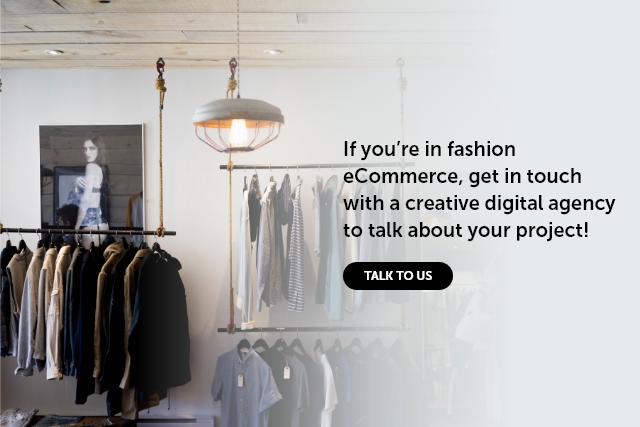Inclusive Marketing: How Fashion Brands Can Achieve Hefty Results
Being aware of current marketing trends as they pertain to your industry can be pivotal in regards to achieving success and one of the fastest-growing trends in recent years has been inclusive marketing. This is especially the case when we refer to fashion brands.
Now it may seem slightly reductive to refer to inclusive marketing as a trend but, with today’s younger consumers in particular, the importance of it cannot be overstated in relation to your brand growth. In fact, 93 percent of marketers believe that inclusive marketing is vital for the company potential it represents. Although one in four people are living with a disability, only one per cent of adverts represent them.
Diversity in the fashion industry
Let’s start by looking at inclusivity in the fashion industry. The fashion sector has long been one that comes under scrutiny, and the call for diversity has been a loud one in recent years. A recent study from McKinsey & Company, called the State of Diversity, Equity & Inclusion in Fashion survey, reported on this.
There are some interesting findings. For example, 68 per cent of black employees report greater inaccessibility to the fashion sector in comparison to white employees. This shows that there is still work that needs to be done.
What is Inclusive Marketing?
Inclusive marketing is exactly what it sounds like. It involves creating content that truly reflects the diverse communities of people who may buy your products. This means featuring and including imagery and advertising that connects and resonates with all people no matter what their race, ethnicity, gender identity, age, religion, ability, sexual orientation or any other way they may characterise themselves. As a company, diversity and inclusion marketing should be a definitive pillar of your brand ethos and messaging strategies.
Another one of the inclusive brands definition is to focus on elevating and promoting diverse voices and role models while also decreasing any cultural bias as you look to lead positive social change through thoughtful and respectful content from which no one can be offended.
Why Inclusive Marketing is Important?
This aspect of marketing is becoming increasingly important as more and more consumers are being swayed by a brand’s values as opposed to just their products. Inclusive marketing statistics show that in total 44% of consumers claim that it’s important for the values of a brand to align with their own, rising to 52% amongst Millennials. Essentially, if your brand is looking to target the younger generations, inclusive marketing is an absolute must in order to secure their attention.
This goes further than just values however as the diversity and inclusion needs to be a cornerstone of your visual branding and overall aesthetic. According to a 2016 study from Shutterstock, results showed that 88% of marketers surveyed agreed that using a more diverse range of images can help a brand’s reputation whilst 41% now believe it’s important to represent modern-day society in marketing imagery, much higher than was previously the case.
Beyond just merely showcasing diverse people, lives and voices, the best inclusive marketing campaigns will elevate the stories of people who traditionally have been marginalised or underrepresented. In turn, this will help create deeper connections with your customers, and, when done well, can even influence positive conversations that lead to social change.
How is inclusive marketing achieved?
There are three key elements of an inclusive marketing strategy. These are as follows:
- Unite people with things they have in common – We are all different, but we all have things in common. It’s about finding that middle ground, without assuming that everyone is the same. Avoid stereotypes and assumptions.
- Highlight real stories – Another way of being inclusive is by highlighting real stories that people experience from all walks of life, across all ‘groups’ of people.
- Solve for your customers – Solve for ALL of your customers. To do this, you need to understand that people have different pain points and issues.
The Principles of Inclusive Marketing
Essentially, there are several key principles concerning how to create an inclusive marketing strategy in order to be successful. Namely, these include:
- Tone: The overall tone of a piece of marketing concerns the style, sentiment and subject of the piece. This is something that should be considered in the creation stage of the process to ensure everything remains respectful.
- Context: Context involves everything that surrounds your piece of content. This can include historical or cultural context and is a particularly nuanced aspect. Understanding the context in which your content is placed can help it to be as inclusive as possible.
- Representation: This includes the visual presence of variety in your content – something incredibly important regarding any marketing strategies for fashion brands. Representation has incredible power and people from all walks of life want to see themselves reflected in the media.
- Language: We all know the influence words can have. Careful consideration of every word, phrase, quote or symbol at each stage of the marketing process can help your content be considered truly inclusive.
- Appropriation: This principle involves avoiding taking or using aspects of a minority culture without knowing or honouring the true meaning of it. Many influences and brands have suffered because of campaigns which were considered to appropriate a culture so seeking guidance and diverse opinion of a piece of content before publishing is a critical step in the process.
- Stereotypes: Ads or content that reaffirms harmful or prejudiced stereotypes can be incredibly toxic. Your marketing should seek to shatter stereotypes in order to affect society for the better.
Inclusive marketing strategies
Let’s take a look at some strategies for inclusive clothing brands and fashion businesses.
- Be thoughtful about visuals – When it comes to digital advertising, visuals are incredibly important. Videos, graphics, and photos are a way of instantly hooking the viewer and making them want to find out more. However, you could push people to bounce instead of buy if your imagery is not inclusive.
- Celebrate more than “major” holidays – It is common for businesses to celebrate major holidays, such as Christmas and Valentine’s Day. But why stop here? Instead, acknowledge or celebrate holidays that focus on marginalised or diverse groups of people.
- Avoid stereotypes – You must avoid employing appropriation and stereotypes. This can offend people and get your business in hot water. Keep nuance, context, and empathy at the top of your mind when you are brainstorming marketing initiatives.
- Use inclusive language – Finally, make sure your messaging does not contain any references, slang, or other verbiage that discriminates against certain people. Make sure your marketing contains inclusive language, as well as your website copy and job descriptions.
Marketing Tips for Fashion Brands

As a fashion brand, focusing on inclusive marketing is vital to your success. So let’s outline a few handy tips that can help you get on your way and connecting with your consumers in a more meaningful way:
- Promote Body Positivity: Seeing models all of one size or ethnicity can turn off potential consumers as they will associate your products with an idealised, unattainable standard of beauty. This is a huge proportion of potential customers you are potentially turning away. Take the plus size market statistics as an example which suggest that it has a potential $20 billion market opportunity for companies that are willing to involve themselves in it.
- Celebrate Variety: Building upon this idea, if you want to connect with consumers all over the world then you will need to create campaigns that highlight a variety of different communities and cultures.
- Emphasise Reality: Using real people in your campaigns as opposed to models or celebrities can build a deeply rooted, emotional connection with consumers. You are celebrating who they are and, in turn, they will celebrate your company for doing this.
- Do Thorough Research: Extensive research can ensure that you are fully aware of all cultural intricacies before you even begin production of your campaign. By doing this accurately you can ensure that any potential insensitivities or appropriations are prevented from making it to the final iterations.
- Prioritise Values: Reaffirming and emphasising the values you share with your customers through your products and messaging can be a great way to connect with them on a deeper level. Instead of focusing purely on your products, explain how they will feel when using them and how they reflect the values and mission statement of your company itself.
5 Brands That Got Inclusive Marketing Right
More and more brands are beginning to focus on inclusive marketing so let’s take a look at some examples of the companies that were able to achieve great results and connect with their audience by being truly inclusive:
- Lively: As companies like Victoria’s Secret are beginning to wane in popularity due to their lack of relatability and inclusivity, Lively has seen success after success by involving women of all shapes and sizes in their marketing. Honing in on female positivity and empowerment, the company grew by 300% in 2017 alone. It isn’t just in the content of their ads or website that reinforces their brand mentality, Lively run a podcast on their site and stage events and experiences for their consumers to participate in.
- Coca-Cola: Since the days of the ‘I’d Like to Buy the World a Coke’ advert, Coca-Cola has looked to promote inclusivity within their brand. In a recent advert aired during the Super Bowl, the company once again championed inclusion by using non-gender specific pronouns. By having a genuine understanding of the strength which words can have on their audience, they were able to connect with consumers who may have previously felt alienated with other brands.
- Bumble: Bumble illustrated the importance of involving real people in a marketing campaign with their ‘Find Me On Bumble’ approach. In this campaign, they launched a webpage, videos and an Instagram account, all to highlight inspiring people from New York. Letting genuine people tell their stories themselves was more effective than any number of scripted productions ever could be as Bumble celebrated the everyday people who make up their app.
- Fenty Beauty: By researching different demographics and listening carefully to customer needs, Fenty Beauty were able to discover underserved and underrepresented consumers in the makeup sector. They developed a line of products specifically for people with skin colours that weren’t traditionally served by the mainstream industry and involved them in the marketing process. With over $100 million in sales after just 40 days on the market, Fenty Beauty displayed the overwhelming power that inclusive marketing can have.
- Maltesers: Being inspired by the stories from people with a variety of disabilities and celebrating their capabilities and successes, Maltesers’ campaign ‘Look on the Light Side of Disability’ focused on empowerment and positivity in relation to the disabled community.
Inclusive Marketing 2023
In 2023, inclusivity in marketing will be more important than ever before, and if companies fail to incorporate it into their overall approach there can be severe consequences. In fact, 57 per cent of customers are more loyal to brands that are committed to addressing social inequities in their actions.
For fashion brands, in particular, not adhering to an inclusive philosophy will see them lose a number of potential customers to competitors who do champion inclusivity and positive messaging.
However, by following the example of the companies listed in this article as well taking on board the main tips and principles that can lead to engaging and authentic inclusive marketing strategies, your fashion brand will be connecting with people from every walk of life in no time at all.

Subscribe To Us
Contributors
Categories
Subscribe To Us
Contributors
Categories

This website uses cookies so that we can provide you with the best user experience possible. Cookie information is stored in your browser and performs functions such as recognising you when you return to our website and helping our team to understand which sections of the website you find most interesting and useful. Third party cookies such as Google Analytics is also used on this site to provide analytics in order to better understand the user engagement on our site.
You can adjust all of your cookie settings by navigating the tabs on the left hand side.
Strictly Necessary Cookie should be enabled at all times so that we can save your preferences for cookie settings.
If you disable this cookie, we will not be able to save your preferences. This means that every time you visit this website you will need to enable or disable cookies again.







0.Comments